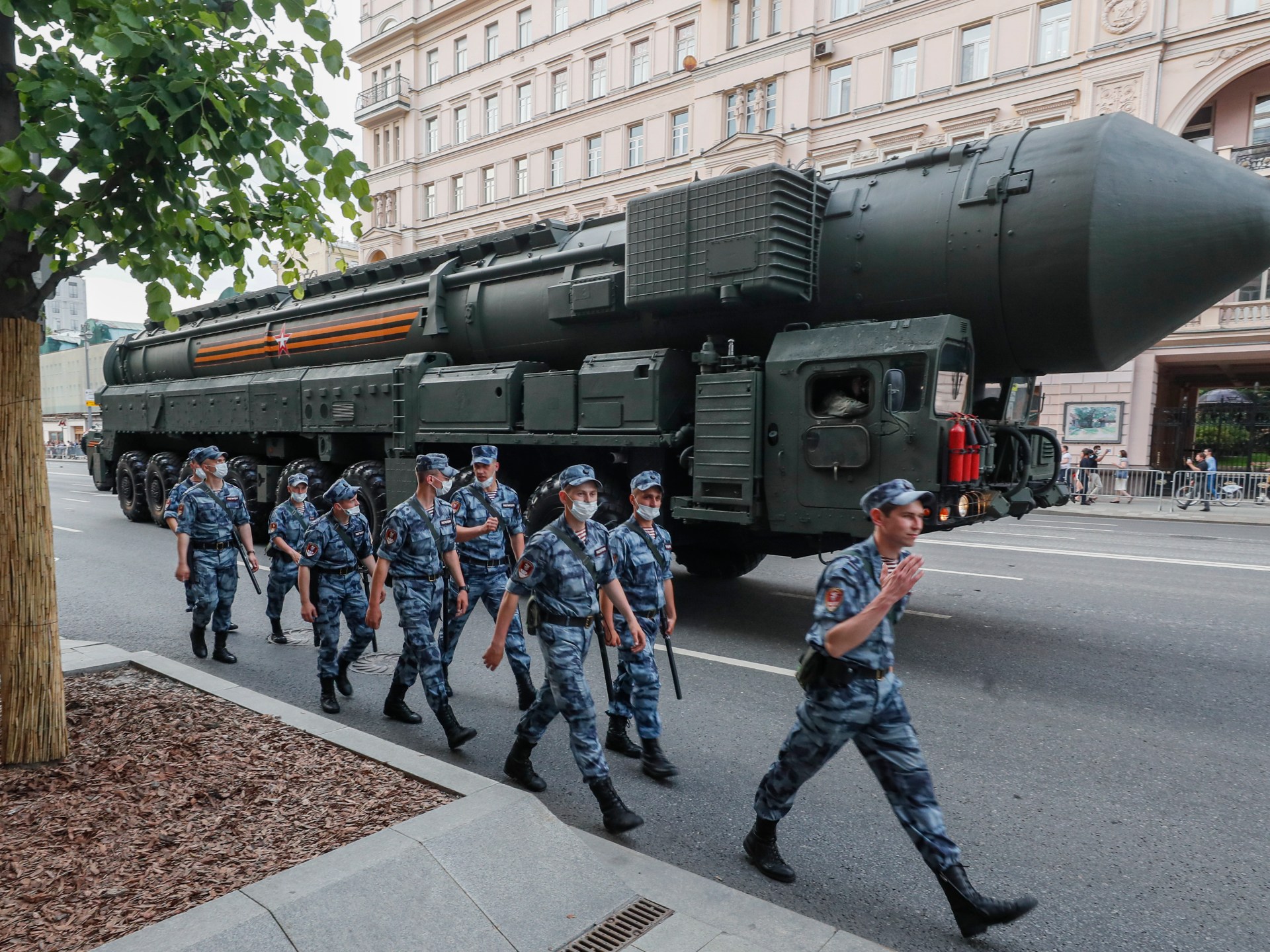MOSCOW (Reuters) - Russian President Vladimir Putin said on Friday that his country might formally consider adding the possibility of a preemptive nuclear first strike to disarm an adversary to its military doctrine, just days after he warned that a nuclear war was building up, which he blamed on the West.
"We are thinking about this ... if we are talking about a disarmament strike, perhaps we should consider using the approach of our American partners," President Putin told reporters after a summit in Kyrgyzstan, Bloomberg reported, citing what he described as US strategies to use high-precision missiles to target preemptive strike.
Putin added that his country does not adopt the principle of launching a preemptive nuclear strike, unlike the United States, but Russia's advanced hypersonic weapons - he adds - will ensure that Russia responds forcefully if it is attacked.
The Russian president's comment on the use of nuclear weapons is the second in 3 days, as Putin said that the threat of nuclear war is increasing, and described the Russian arsenal as a "deterrent factor" in conflicts.
In his remarks today, Putin vowed to "erase from the face of the earth any country that dares attack Russia with nuclear weapons."
Nuclear preparedness
On February 27, days after the outbreak of the Ukraine war, President Putin ordered the Ministry of Defense to put the nuclear deterrence forces on alert, in light of the escalating tension with the West over the Ukraine war.
Putin explained that his decision comes in response to Western officials who "not only took hostile economic steps, but also made aggressive statements against Russia by their NATO officials."
Russia possesses one of the largest arsenals of nuclear weapons in the world, and relies on it as a means to ensure its security, and at the same time it constantly calls for nuclear disarmament and to prevent the emergence of new countries that possess this type of weapon.
Hence, it is guided by the "nuclear doctrine" endorsed by President Putin on June 2, 2020, and called the "Foundations of State Policy in the Field of Nuclear Deterrence", which defines - among other things - a list of conditions for the use of nuclear weapons.
response scenarios
The criteria for the use of nuclear weapons by Russia have not changed according to the new doctrine compared to those adopted in 2010, and it stipulates that Moscow will - in response to an attack on it or its allies - use nuclear weapons or other weapons of mass destruction, or in the event of "aggression with conventional weapons." But it threatens the very existence of the state.
For reference, the 2010 document on nuclear deterrence was not published at the time, but when the military doctrine was approved in a decree by former President Dmitry Medvedev, only the name of the document was mentioned, and it remained closed.
The aforementioned document describes the conditions for determining the possibility of using nuclear weapons, by "receiving reliable information about the launch of ballistic missiles at Russia and its allies, the enemy's use of nuclear weapons and other weapons of mass destruction, and the enemy's influence on sensitive facilities, the failure of which will lead to disrupting the response of nuclear forces."
However, the 2020 version of the nuclear doctrine included a new phrase affirming that the Russian state's policy in the field of nuclear deterrence aims to end the war on terms acceptable to it.
According to the document, Russia considers the use of nuclear weapons as a last resort.
At the same time, the conditions on which nuclear weapons can be used have been expanded.

